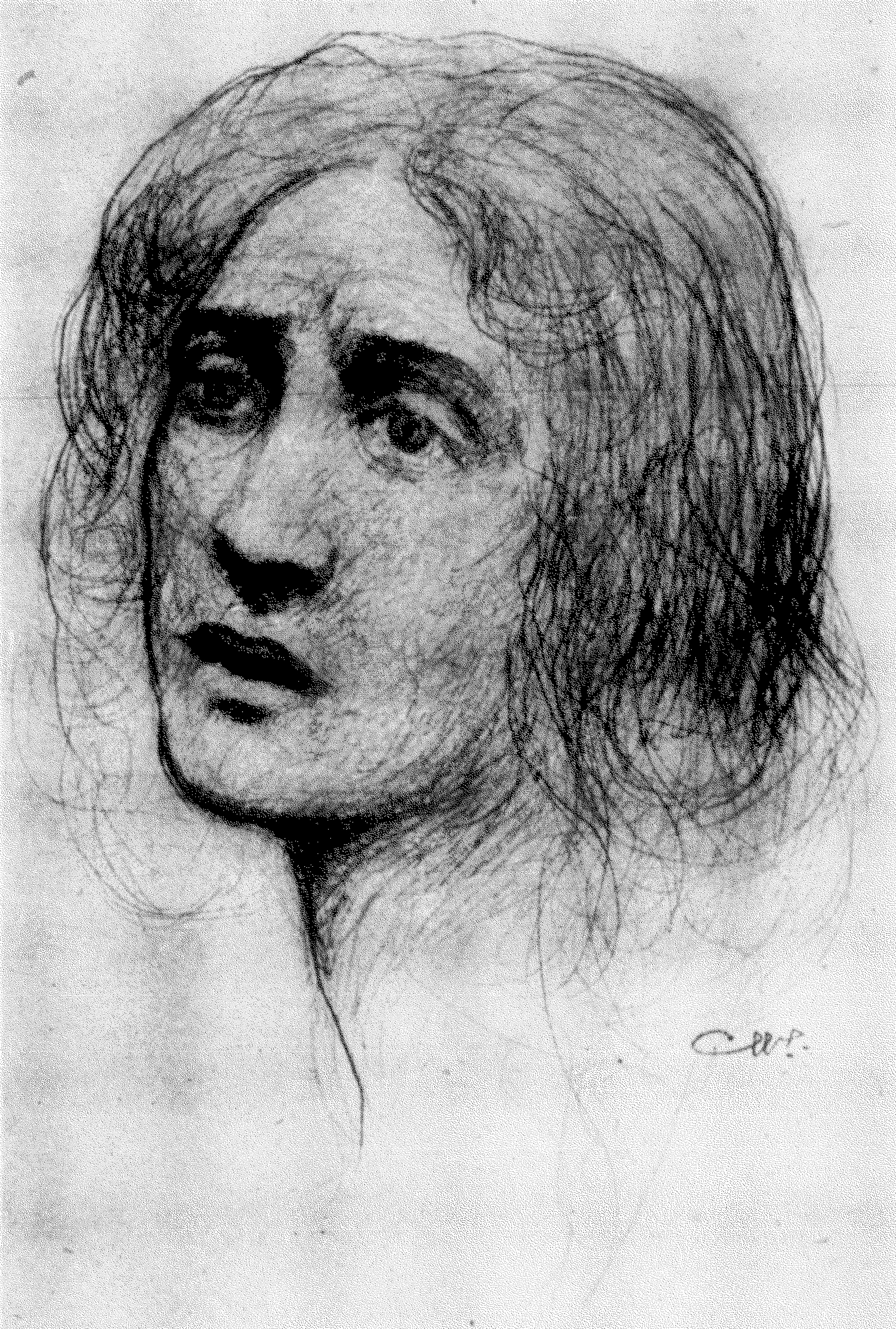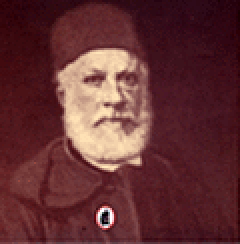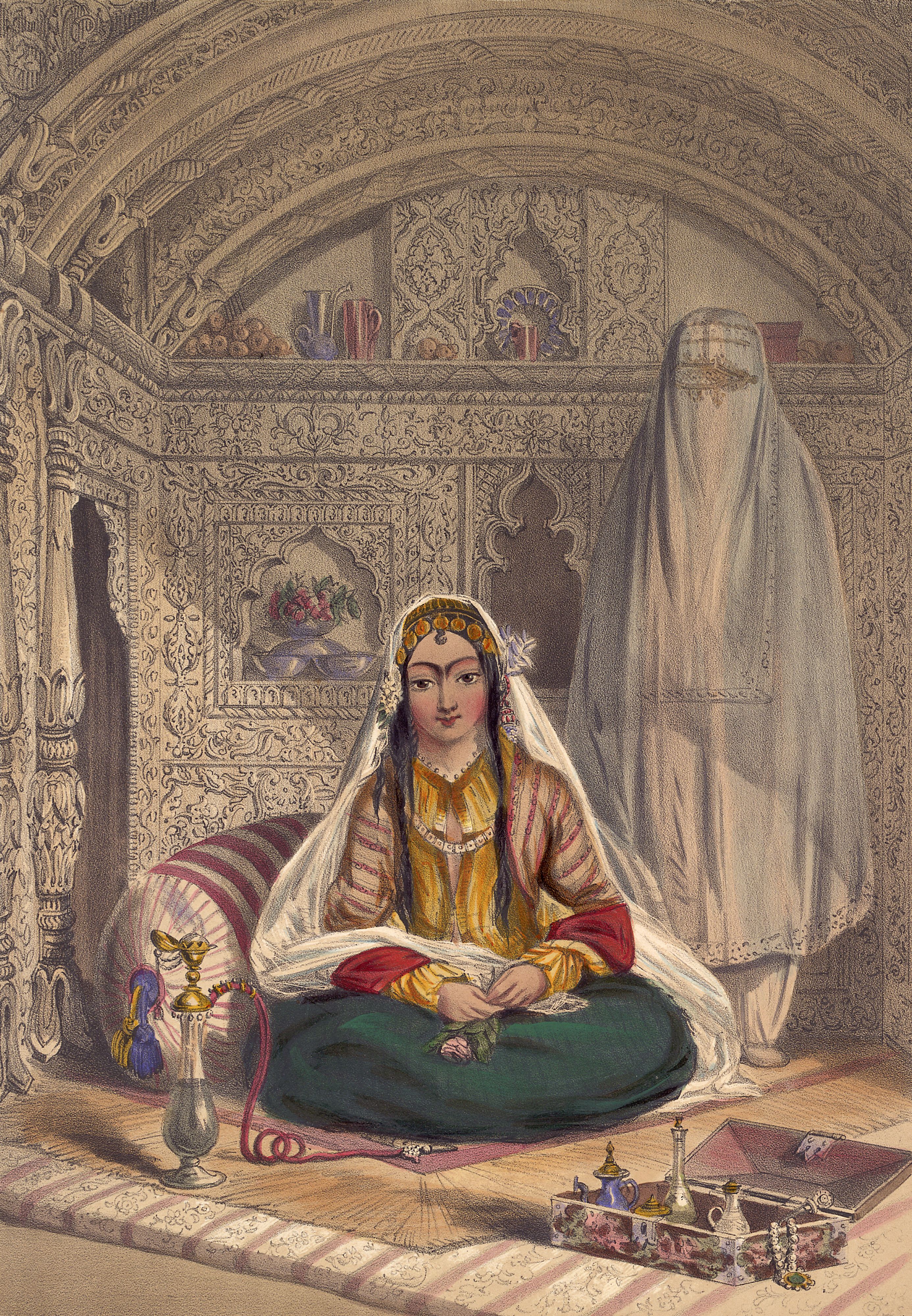|
Women's Literary Salons And Societies In The Arab World
The tradition of women's literary circles in the Arab world dates back to the pre-Islamic period when the eminent literary figure, Al-Khansa, would stand in the 'Ukaz market in Mecca, reciting her poetry and airing her views on the scholarship of others. From this, a culture of literary criticism emerged among Arab women, and under the Umayyad dynasty, Sukaynah Bint Al-Husayn established the first literary salon in her home.Khaldi, 2008, p. 58 The tradition was revived during the late nineteenth century, as a result of sweeping social, political and economic change within the Ottoman Empire and Europe's increasing political and cultural influence in the region. The initial pioneers of the Arab salon were women from wealthy families in Greater Syria and Egypt, who returned influenced by interaction with European women during their time spent studying abroad and frequenting Parisian salons, or studying in schools run by European or American missionaries. The salon evenings, run by w ... [...More Info...] [...Related Items...] OR: [Wikipedia] [Google] [Baidu] |
Al-Khansa
Tumāḍir bint ʿAmr ibn al-Ḥārith ibn al-Sharīd al-Sulamīyah ( ar, تماضر بنت عمرو بن الحارث بن الشريد السُلمية), usually simply referred to as al-Khansāʾ ( ar, الخنساء, links=no, meaning "snub-nosed", an Arabic epithet for a gazelle as metaphor for beauty) was a 7th century in poetry, 7th-century tribeswoman, living in the Arabian Peninsula. She was one of the most influential poets of the Pre-Islamic Arabia, pre-Islamic and early Islamic periods. In her time, the role of a female poet was to write elegy, elegies for the dead and perform them for the tribe in public Oral literature, oral competitions. Al-Khansāʾ won respect and fame in these competitions with her elegies, and is widely considered as the finest author of Arabic poetry, Arabic elegies and one of the greatest and best known female Arab poets of all time. In 629, she went to Medina with a deputation from her clan and, after meeting the Islamic prophet Muhammad, emb ... [...More Info...] [...Related Items...] OR: [Wikipedia] [Google] [Baidu] |
Beirut
Beirut, french: Beyrouth is the capital and largest city of Lebanon. , Greater Beirut has a population of 2.5 million, which makes it the third-largest city in the Levant region. The city is situated on a peninsula at the midpoint of Lebanon's Mediterranean coast. Beirut has been inhabited for more than 5,000 years, and was one of Phoenicia's most prominent city states, making it one of the oldest cities in the world (see Berytus). The first historical mention of Beirut is found in the Amarna letters from the New Kingdom of Egypt, which date to the 14th century BC. Beirut is Lebanon's seat of government and plays a central role in the Lebanese economy, with many banks and corporations based in the city. Beirut is an important seaport for the country and region, and rated a Beta + World City by the Globalization and World Cities Research Network. Beirut was severely damaged by the Lebanese Civil War, the 2006 Lebanon War, and the 2020 massive explosion in the ... [...More Info...] [...Related Items...] OR: [Wikipedia] [Google] [Baidu] |
Europe
Europe is a large peninsula conventionally considered a continent in its own right because of its great physical size and the weight of its history and traditions. Europe is also considered a Continent#Subcontinents, subcontinent of Eurasia and it is located entirely in the Northern Hemisphere and mostly in the Eastern Hemisphere. Comprising the westernmost peninsulas of Eurasia, it shares the continental landmass of Afro-Eurasia with both Africa and Asia. It is bordered by the Arctic Ocean to the north, the Atlantic Ocean to the west, the Mediterranean Sea to the south and Asia to the east. Europe is commonly considered to be Boundaries between the continents of Earth#Asia and Europe, separated from Asia by the drainage divide, watershed of the Ural Mountains, the Ural (river), Ural River, the Caspian Sea, the Greater Caucasus, the Black Sea and the waterways of the Turkish Straits. "Europe" (pp. 68–69); "Asia" (pp. 90–91): "A commonly accepted division between Asia and E ... [...More Info...] [...Related Items...] OR: [Wikipedia] [Google] [Baidu] |
Al-Nahda
The Nahda ( ar, النهضة, translit=an-nahḍa, meaning "the Awakening"), also referred to as the Arab Awakening or Enlightenment, was a cultural movement that flourished in Arabic-speaking regions of the Ottoman Empire, notably in Egypt, Lebanon and Syria, during the second half of the 19th century and the early 20th century. In traditional scholarship, the Nahda is seen as connected to the cultural shock brought on by Napoleon's invasion of Egypt in 1798, and the reformist drive of subsequent rulers such as Muhammad Ali of Egypt. However, more recent scholarship has shown the Nahda's cultural reform program to have been as "autogenetic" as it was Western-inspired, having been linked to the Tanzimat—the period of reform within the Ottoman Empire which brought a constitutional order to Ottoman politics and engendered a new political class—as well as the later Young Turk Revolution, allowing proliferation of the press and other publications and internal changes in polit ... [...More Info...] [...Related Items...] OR: [Wikipedia] [Google] [Baidu] |
Jürgen Habermas
Jürgen Habermas (, ; ; born 18 June 1929) is a German social theorist in the tradition of critical theory and pragmatism. His work addresses communicative rationality and the public sphere. Associated with the Frankfurt School, Habermas's work focuses on the foundations of epistemology and social theory, the analysis of advanced capitalism and democracy, the rule of law in a critical social-evolutionary context, albeit within the confines of the natural law tradition, and contemporary politics, particularly German politics. Habermas's theoretical system is devoted to revealing the possibility of reason, emancipation, and rational-critical communication latent in modern institutions and in the human capacity to deliberate and pursue rational interests. Habermas was known for his work on the concept of modernity, particularly with respect to the discussions of rationalization originally set forth by Max Weber. He has been influenced by American pragmatism, action theory, an ... [...More Info...] [...Related Items...] OR: [Wikipedia] [Google] [Baidu] |
Public Sphere
The public sphere (german: Öffentlichkeit) is an area in social life where individuals can come together to freely discuss and identify societal problems, and through that discussion influence political action. A "Public" is "of or concerning the people as a whole." Public Sphere is a place common to all, where ideas and information can be exchanged. Such a discussion is called public debate and is defined as the expression of views on matters that are of concern to the public—often, but not always, with opposing or diverging views being expressed by participants in the discussion. Public debate takes place mostly through the mass media, but also at meetings or through social media, academic publications and government policy documents. The term was originally coined by German philosopher Jürgen Habermas who defined the public sphere as "''made up of private people gathered together as a public and articulating the needs of society with the state''". Communication scholar Ger ... [...More Info...] [...Related Items...] OR: [Wikipedia] [Google] [Baidu] |
Harem
Harem (Persian: حرمسرا ''haramsarā'', ar, حَرِيمٌ ''ḥarīm'', "a sacred inviolable place; harem; female members of the family") refers to domestic spaces that are reserved for the women of the house in a Muslim family. A harem may house a man's wife or wives, their pre-pubescent male children, unmarried daughters, female domestic servants, and other unmarried female relatives. In harems of the past, slave concubines were also housed in the harem. In former times some harems were guarded by eunuchs who were allowed inside. The structure of the harem and the extent of monogamy or polygamy has varied depending on the family's personalities, socio-economic status, and local customs. Similar institutions have been common in other Mediterranean and Middle Eastern civilizations, especially among royal and upper-class families, and the term is sometimes used in other contexts. In traditional Persian residential architecture the women's quarters were known as ''andar ... [...More Info...] [...Related Items...] OR: [Wikipedia] [Google] [Baidu] |
Salon (gathering)
A salon is a gathering of people held by an inspiring host. During the gathering they amuse one another and increase their knowledge through conversation. These gatherings often consciously followed Horace's definition of the aims of poetry, "either to please or to educate" (Latin: ''aut delectare aut prodesse''). Salons in the tradition of the French literary and philosophical movements of the 17th and 18th centuries were carried on until as recently as the 1920s in urban settings. Historical background The salon was an Italian invention of the 16th century, which flourished in France throughout the 17th and 18th centuries. The salon continued to flourish in Italy throughout the 19th century. In 16th-century Italy, some brilliant circles formed in the smaller courts which resembled salons, often galvanized by the presence of a beautiful and educated patroness such as Berta Zuckerkandl, Isabella d'Este or Elisabetta Gonzaga. Salons were an important place for the exchange of i ... [...More Info...] [...Related Items...] OR: [Wikipedia] [Google] [Baidu] |
Lord Cromer
Earl of Cromer is a title in the Peerage of the United Kingdom, held by members of the Baring family, of German descent. It was created for Evelyn Baring, 1st Viscount Cromer, long time British Consul-General in Egypt. He had already been created Baron Cromer, of Cromer in the County of Norfolk, in 1892, Viscount Cromer, of Cromer in the County of Norfolk, in 1899, and was made Viscount Errington, of Hexham in the County of Northumberland, and Earl of Cromer, in the County of Norfolk, on 8 August 1901. These titles are also in the Peerage of the United Kingdom. A member of the influential Baring banking family, Lord Cromer was the son of Henry Baring, third son of Sir Francis Baring, 1st Baronet. He was succeeded by his son, the second Earl, a diplomat and civil servant. His son, the third Earl, was also a diplomat and served as British Ambassador to the United States between 1971 and 1974. In 2010 the titles are held by the latter's son, the fourth Earl, who succeeded in 199 ... [...More Info...] [...Related Items...] OR: [Wikipedia] [Google] [Baidu] |
History Of Egypt Under The British
The history of Egypt under the British lasted from 1882, when it was occupied by British forces during the Anglo-Egyptian War, until 1956 after the Suez Crisis, when the last British forces withdrew in accordance with the Anglo-Egyptian agreement of 1954. The first period of British rule (1882–1914) is often called the "veiled protectorate". During this time the Khedivate of Egypt remained an autonomous province of the Ottoman Empire, and the British occupation had no legal basis but constituted a ''de facto'' protectorate over the country. Egypt was thus not part of the British Empire. This state of affairs lasted until 1914 when the Ottoman Empire joined the First World War on the side of the Central Powers and Britain declared a protectorate over Egypt. The ruling khedive was deposed and his successor, Hussein Kamel, compelled to declare himself Sultan of Egypt independent of the Ottomans in December 1914. The formal protectorate over Egypt outlasted the war for only a ... [...More Info...] [...Related Items...] OR: [Wikipedia] [Google] [Baidu] |
May Ziadeh
May Elias Ziadeh ( ; ar, مي إلياس زيادة, ; 11 February 1886 – 17 October 1941) was a Lebanese people, Lebanese-Palestinians, Palestinian poet, essayist, and translator, who wrote many different works both in Arabic language, Arabic and in French language, French. After attending school in her native city Nazareth and in Lebanon, May Elias Ziadeh immigrated along with her family to Egypt in 1908, and started publishing her works in French (under the pen name Isis Copia) in 1911. Kahlil Gibran, Gibran Kahlil Gibran entered into a correspondence with her in 1912. Being a prolific writer, she wrote for Arabic-language newspapers and periodicals, along with publishing poems and books. May Elias Ziadeh held one of the Women's literary salons and societies in the Arab world, most famous literary salons in the modern Arab world in the year 1921. After suffering some personal losses at the beginning of the 1930s, she came back to Lebanon where her relatives placed her in ... [...More Info...] [...Related Items...] OR: [Wikipedia] [Google] [Baidu] |
France
France (), officially the French Republic ( ), is a country primarily located in Western Europe. It also comprises of Overseas France, overseas regions and territories in the Americas and the Atlantic Ocean, Atlantic, Pacific Ocean, Pacific and Indian Oceans. Its Metropolitan France, metropolitan area extends from the Rhine to the Atlantic Ocean and from the Mediterranean Sea to the English Channel and the North Sea; overseas territories include French Guiana in South America, Saint Pierre and Miquelon in the North Atlantic, the French West Indies, and many islands in Oceania and the Indian Ocean. Due to its several coastal territories, France has the largest exclusive economic zone in the world. France borders Belgium, Luxembourg, Germany, Switzerland, Monaco, Italy, Andorra, and Spain in continental Europe, as well as the Kingdom of the Netherlands, Netherlands, Suriname, and Brazil in the Americas via its overseas territories in French Guiana and Saint Martin (island), ... [...More Info...] [...Related Items...] OR: [Wikipedia] [Google] [Baidu] |







